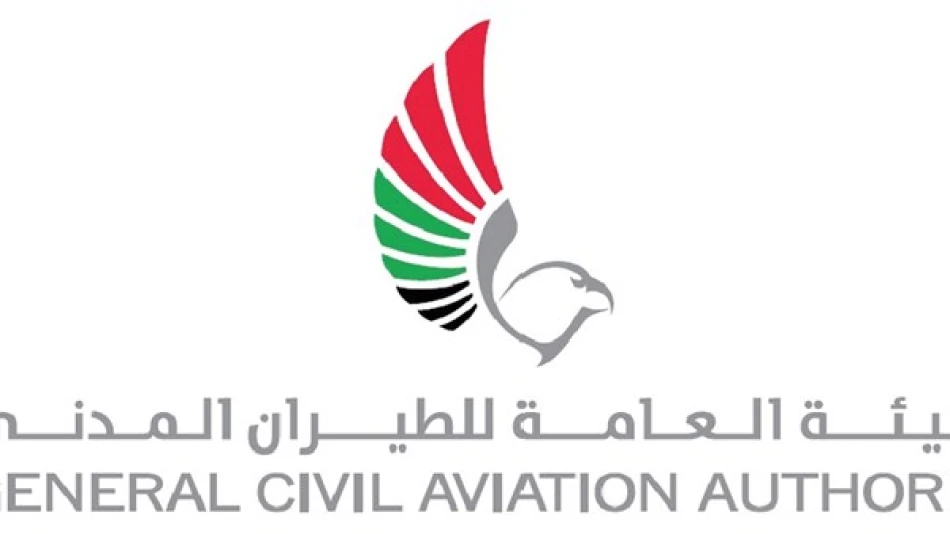
400,000 Flights Benefit from Open Airspace Initiative, Says Civil Aviation Authority
UAE's Revolutionary Free Route Airspace Cuts Carbon Emissions by 35,000kg in First Year
The United Arab Emirates has demonstrated that smart aviation technology can deliver immediate environmental and operational benefits, with its Free Route Airspace (FRA) project saving over 235,000 nautical miles and reducing carbon emissions by nearly 35,000kg in just one year. More than 400,000 flights have benefited from the system, which allows aircraft to choose optimal routes rather than follow fixed airways, positioning the UAE as a regional leader in sustainable aviation management.
Flexible Flight Paths Drive Efficiency Gains
Launched in mid-2023, the UAE's Free Route Airspace project represents a fundamental shift from traditional aviation management. Instead of forcing aircraft to follow predetermined corridors, the system enables pilots and flight planners to select their preferred routes above flight level 355 (approximately 35,500 feet).
The results speak volumes about the potential for data-driven airspace design. Beyond the environmental benefits, airlines saved more than 11,000kg of fuel across the 400,000+ flights that utilized the system. These savings translate directly to reduced operational costs for carriers and shorter flight times for passengers.
Strategic Implementation in Congested Airspace
The UAE's achievement is particularly noteworthy given that its airspace ranks among the world's busiest, handling over one million air traffic movements last year. The country's position as a major aviation hub connecting Europe, Asia, and Africa means that efficiency improvements here have ripple effects across global air traffic patterns.
The project required extensive coordination with neighboring air navigation service providers and international aviation bodies to ensure seamless integration with surrounding flight information regions. This collaborative approach reflects the UAE's broader strategy of positioning itself as a regional aviation leader while supporting global International Civil Aviation Organization (ICAO) objectives.
Regional Leadership in Aviation Innovation
The UAE's Free Route Airspace initiative fits into a larger pattern of Gulf states investing heavily in aviation infrastructure and innovation. Similar to how Dubai and Abu Dhabi transformed themselves into global aviation hubs over the past two decades, this technological advancement reinforces the region's commitment to maintaining its competitive edge in international air transport.
The project aligns with ICAO's Aviation System Block Upgrades (ASBU) framework, demonstrating how national initiatives can support global aviation harmonization efforts. By implementing Performance-Based Navigation (PBN) and Air Traffic Flow Management (ATFM) systems alongside the free route concept, the UAE is creating an integrated approach to airspace modernization.
Technology-Driven Future Planning
The UAE's investment in artificial intelligence applications and advanced surveillance tools suggests this is just the beginning of a broader transformation. The integration of AI-powered decision support systems with flexible routing capabilities could serve as a model for other regions grappling with increasing air traffic demands and environmental pressures.
The success of the limited implementation—currently restricted to higher flight levels—indicates significant potential for expansion. As the system proves its reliability and benefits, extending free route capabilities to lower altitudes could multiply the environmental and operational gains.
Market Implications for Global Aviation
For airlines operating through UAE airspace, these efficiency gains represent tangible cost savings in an industry where fuel expenses constitute a major operational burden. The combination of shorter routes, reduced fuel consumption, and lower emissions creates a compelling business case for supporting similar initiatives elsewhere.
The project's success also positions UAE-based carriers with a competitive advantage, as they can optimize their extensive route networks through one of the world's most advanced airspace management systems. This technological edge reinforces the strategic value of the UAE's geographic position and its substantial investments in aviation infrastructure.
The UAE's Free Route Airspace project demonstrates that immediate environmental and operational benefits are achievable through smart aviation technology deployment, setting a benchmark for sustainable airspace management in congested aviation markets worldwide.
Most Viewed News

 Layla Al Mansoori
Layla Al Mansoori






